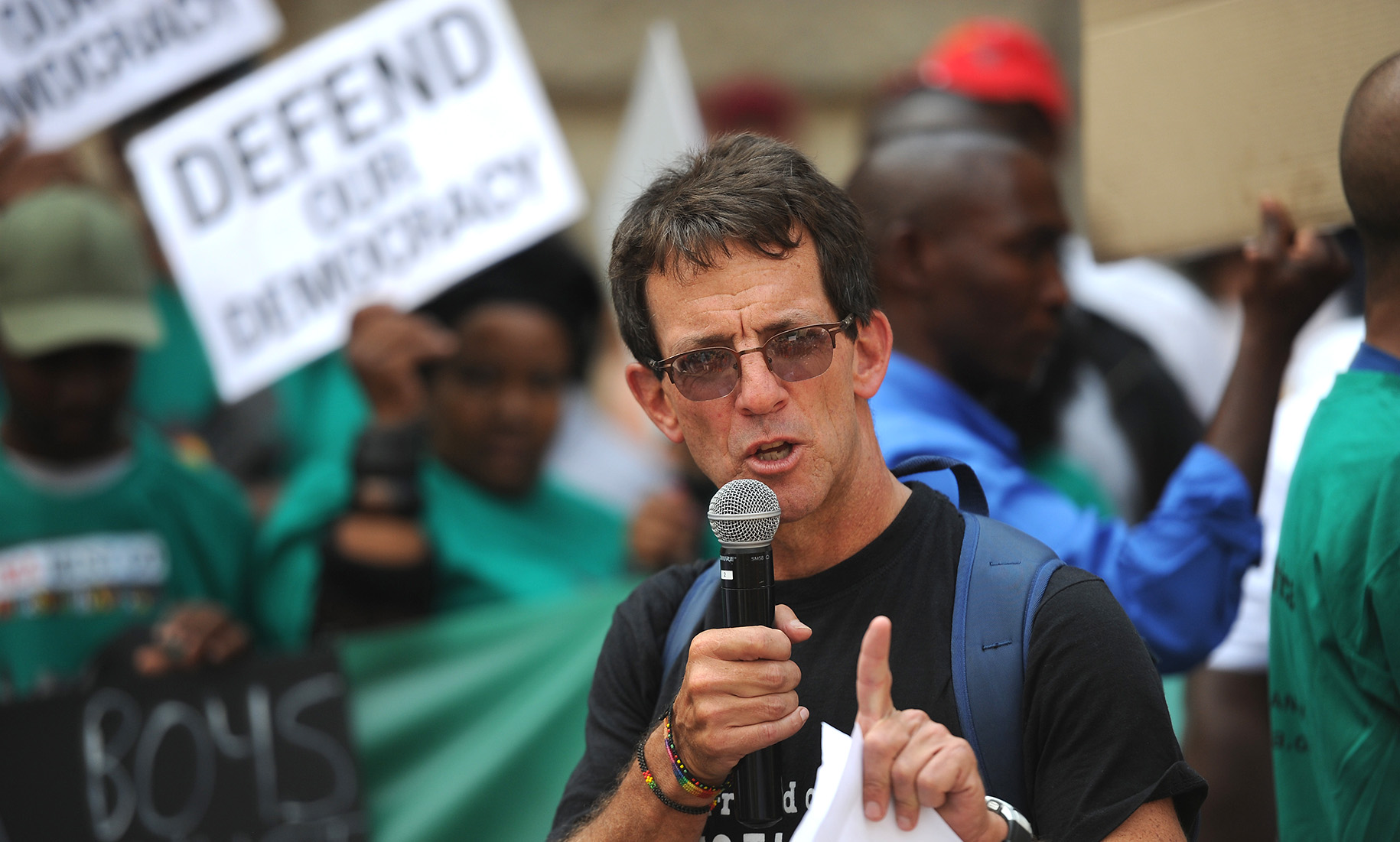This is the last editorial I will write as editor of the Maverick Citizen. It’s been a privilege and to those of you who do, thank you for having read my weekly efforts to make sense of South Africa and the world, and to do so through the lens of activism, human rights and social justice. We have been trying to bring you the world from the ground up.
Please keep supporting and reading Maverick Citizen. I think that we have cut a path and the small, dedicated team will continue to do so. Hats off (or rather shoes on!) to Anso Thom, Zukiswa Pikoli, Estelle Ellis, Tamsin Metelerkamp, Takudzwa Pongweni, Naledi Sikhakhane, Lerato Mustila and Joyrene Kramer (all women, you might notice).
2024 will prove a very important year in the history of the world. Maverick Citizen is where you will find news about people that matter (rather than people who think they matter), stories that awaken hope in you, and truth-telling that depresses the hell out of you.
But the aim is not to debilitate you. It is to get you off your seat to take action; to help you unleash your power.
How to achieve positive change?
As you may have heard, I am leaving Daily Maverick to contribute to building a new political movement,
style="font-weight: 400;">Change Starts Now. From scratch. Change Starts Now aspires to win the trust, and more importantly, inspire in millions of people the sense of possibility to fix our country. And, next year to persuade people to vote for change to start now.
It’s a long shot, rather than a moon shot. But every movement starts with a first step and a handful of committed individuals rather than a constituency. The biggest constituency is the constituency that is not in any constituency. Yet, judging by our learned commentators, political movements emerge ready-baked, like a Woolworths pie! As I was driving home yesterday afternoon I was listening to some of these learned friends discussing the proliferation of new political parties on Radio 702. It almost made me want to throw in the towel before we started.
But change and its attendant risks, not comfort zones, is what social activists must embrace. The media and civil society play a vital role in shaping decent societies, but they are being largely ignored. Not only that, they are being emasculated, starved of funding, criminalised and battered.
To advance human rights we have to square up to political power, take civil society struggles to the inside and engage in persuasion. That means we have to confront the issue of electoral power.
The 702 discussion reminded me of the naysayers and “this can’t be done-ers” who buzzed around us when we started the Treatment Action Campaign (TAC) 25 years ago. They told us you had to “fix the health system before you could start providing life-saving antiretroviral medicines (ARVs) to people with HIV”. They told us we “didn’t know what we were doing — we were activists, not health experts”.
But we were not deterred. Then we built the most respected Aids activist movement on the globe. We saved five million lives after we won our campaign for access to ARVs. The health system as a whole emerged stronger.
Read more in the Daily Maverick: TAC celebrates 25 years of victories, but HIV fight ‘is still not over
We are living in a material world …
People invent all sorts of reasons for continuing along broken roads: “Activists shouldn't work with capitalists; social movements shouldn’t get tangled up with business or government”. They jump to conclusions on the basis of ill-informed media articles. As a result, we go on in splendid isolation.
However, one thing I have learned from five years in journalism is that it’s much easier to critique than to do. I’ve also learned that between black and white there’s a hell of a lot of gray.
In her latest book, Doppelganger, Namoi Klein describes this phenomenon as “Binaries where thinking once lived”. Unfortunately, that’s a state of being that’s infecting us all.
But not only do people expect social justice activists to think in binaries, they expect us to live and act in binaries.
I am a socialist. My lefty credentials are impeccable! 40 years ago I read Das Kapital aloud, line by line, in a dingy London flat with a person who later became a leading advocate at the Cape Bar. We discussed every point in fine detail. As modern writers like




 File Photo: Mark Heywood addresses protesters at Church Square during the #BlackMonday march on April 03, 2017 in Pretoria, South Africa. Civil rights groups, motivated by President Jacob Zuma’s controversial cabinet reshuffle, called on South Africans to wear black on Monday 3 April and to march in protest.
(Photo: Gallo Images / Beeld / Felix Dlangamandla)
File Photo: Mark Heywood addresses protesters at Church Square during the #BlackMonday march on April 03, 2017 in Pretoria, South Africa. Civil rights groups, motivated by President Jacob Zuma’s controversial cabinet reshuffle, called on South Africans to wear black on Monday 3 April and to march in protest.
(Photo: Gallo Images / Beeld / Felix Dlangamandla)